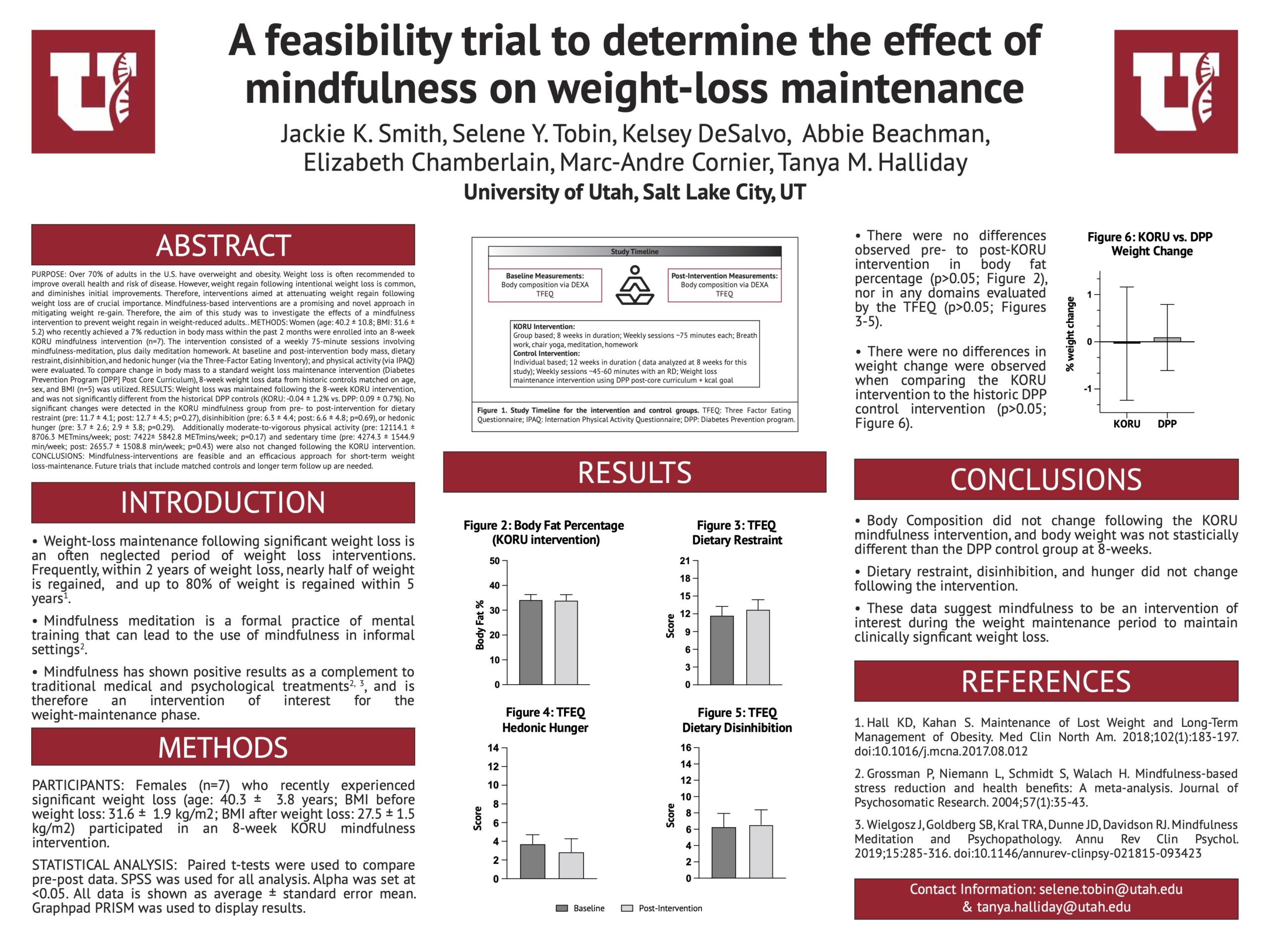Presenter Name: Jackie Smith
Description
PURPOSE: Over 70% of adults in the U.S. have overweight and obesity. Weight loss is often recommended to improve overall health and risk of disease. However, weight regain following intentional weight loss is common, and diminishes initial improvements. Therefore, interventions aimed at attenuating weight regain following weight loss are of crucial importance. Mindfulness-based interventions are a promising and novel approach in mitigating weight re-gain. Therefore, the aim of this study was to investigate the effects of a mindfulness intervention to prevent weight regain in weight-reduced adults.
METHODS: Women (age: 40.2 ± 10.8; BMI: 31.6 ± 5.2) who recently achieved a 7% reduction in body mass within the past 2 months were enrolled into an 8-week KORU mindfulness intervention (n=7). The intervention consisted of a weekly 75-minute sessions involving mindfulness-meditation, plus daily meditation homework. At baseline and post-intervention body mass, dietary restraint, disinhibition, and hedonic hunger (via the Three-Factor Eating Inventory); and physical activity (via IPAQ) were evaluated. To compare change in body mass to a standard weight loss maintenance intervention (Diabetes Prevention Program [DPP] Post Core Curriculum), 8-week weight loss data from historic controls matched on age, sex, and BMI (n=5) was utilized.
RESULTS: Weight loss was maintained following the 8-week KORU intervention, and was not significantly different from the historical DPP controls (KORU: -0.04 ± 1.2% vs. DPP: 0.09 ± 0.7%). No significant changes were detected in the KORU mindfulness group from pre- to post-intervention for dietary restraint (pre: 11.7 ± 4.1; post: 12.7 ± 4.5; p=0.27), disinhibition (pre: 6.3 ± 4.4; post: 6.6 ± 4.8; p=0.69), or hedonic hunger (pre: 3.7 ± 2.6; 2.9 ± 3.8; p=0.29). Additionally moderate-to-vigorous physical activity (pre: 12114.1 ± 8706.3 METmins/week; post: 7422± 5842.8 METmins/week; p=0.17) and sedentary time (pre: 4274.3 ± 1544.9 min/week; post: 2655.7 ± 1508.8 min/week; p=0.43) were also not changed following the KORU intervention.
CONCLUSIONS: Mindfulness-interventions are feasible and an efficacious approach for short-term weight loss-maintenance. Future trials that include matched controls and longer term follow up are needed.
University / Institution: University of Utah
Type: Poster
Format: In Person
Presentation #A78
SESSION A (9:00-10:30AM)
Area of Research: Health & Medicine
Email: u1227970@utah.edu
Faculty Mentor: Tanya Halliday

